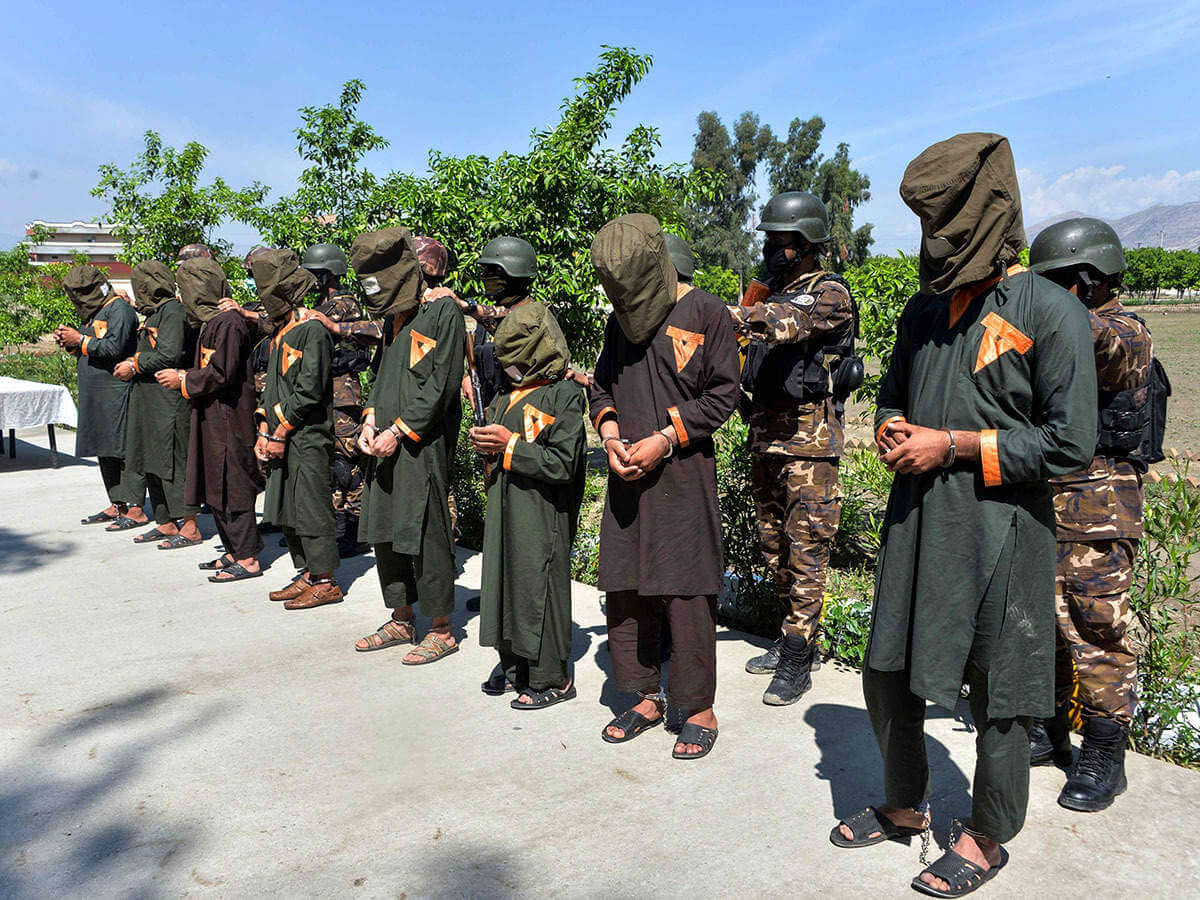The Human Rights Watch (HRW) on Tuesday published a report highlighting that the Islamic State of Khorasan Province (ISKP), the Islamic State’s arm in Afghanistan, has launched multiple ‘brutal’ attacks on the Hazara community and other minorities, killing and injuring hundreds.
The rights group interviewed 21 victims or family members of victims of such attacks in Kabul and Mazar between April and July.
It noted that the ISKP has orchestrated at least 13 attacks against Hazaras since the Taliban took over last August, killing and injuring around 700 people. This includes attacks on schools and even mosques.
Moreover, given the Taliban’s crackdown on media freedoms, these numbers could be much higher. According to United Nations Assistance Mission in Afghanistan, 120 people have been killed or injured in attacks on Shia gatherings in Kabul alone.
NEW: Since the Taliban takeover, ISIS-linked fighters have committed numerous brutal attacks against members of the Hazara community as they go to school, to work, or to pray, without a serious response from the Taliban authorities. #Afghanistan https://t.co/qVNVL9v6R0 pic.twitter.com/8arPfXulap
— Human Rights Watch (@hrw) September 6, 2022
In light of these incidents, the United Nations special rapporteur on human rights in Afghanistan, Richard Bennett, on May 26 called for an investigation into attacks on the Hazara, Shia, and Sufi communities. He noted that these incidents have become “increasingly systematic in nature and reflect elements of an organisational policy, thus bearing hallmarks of crimes against humanity.”
HRW asserted that these incidents not only inflict “immediate devastation” but also take a “long-term toll on the survivors and families of the victims,” including in the form of severe depression and trauma.
The attacks have also increased the vulnerability of women in a country where the Taliban has already instituted heavy restrictions on their freedoms and rights. In instances the victims of these attacks are men, women are often left entirely helpless in light of their decreased access to jobs, education, and even travel.
Today, a series of bomb blasts in Abdul Rahim Shaheed High School and near the Mumtaz Education Center, both of which are located within the predominately Hazara Shiite neighbourhood of Dasht-e-Barchi in West Kabul, killed 6 and injured at least 11 others.
— Amnesty International (@amnesty) April 19, 2022
Fereshta Abbasi, an Afghanistan researcher at HRW, thus argued that the Taliban has reneged on its ‘obligation’ to “protect at-risk communities and assist the victims of attacks and their families.”
The report noted that the Taliban has “done little” to protect these communities, either by providing medical assistance and relief or by increasing security in particularly dangerous areas such as Kabul, Mazar-e Sharif, and Kunduz.
Yet, the Taliban’s interior ministry spokesperson, Saeed Khosty, has said, “As a responsible government, we are responsible for protecting all citizens of Afghanistan, especially the country’s religious minorities.”
Keeping this in mind, the rights group released a set of recommendations urging the ISKP and the Taliban to “comply with international humanitarian laws.”
In particular, it urged the Taliban to protect Afghan minorities and their fundamental rights and consult with minority communities and civil society groups on the issue. The organisation also urged the Taliban to ensure health care, mental health care, and financial assistance to victims and their families.
It also urged countries that have been engaging with the Taliban to honour such commitments. Furthermore, it called for the international community to refrain from unnecessary deportations to Afghanistan and to institute a more welcoming approach to asylum applications, particularly for persecuted Afghan minorities.
The first @Amnesty report following Taliban seizing power and it augurs very badly of the future. #Taliban fighters massacred nine ethnic Hazara men after taking control of #Afghanistan’s Ghazni province last month. https://t.co/TQB5niYu5E
— Agnes Callamard (@AgnesCallamard) August 21, 2021
The concerns outlined in the HRW report were also previously expressed by Amnesty International, which has said that attacks on the minority Hazara community constitute “crimes against humanity and should be unequivocally condemned.” Like the HRW, Amnesty, too, said the Taliban has taken “little to no action” on the issue.
Similarly, the United States Commission on International Religious Freedom’s 2022 report underscored the “resurgence of Taliban and [ISKP] attacks targeting the Shia community.” The report also highlighted Taliban-led attacks on the Shia Hazara community in September 2021, when 2,800 Hazaras were evicted from their residences and subsequently had their properties seized by the Taliban.
The Hazara community, a minority Shia Muslim ethnic group, have borne the brunt of discrimination by several Afghan administrations over the years. The Taliban has had an age-old enmity with the community and was criticised for launching several attacks on the group during its previous tenure as well.

